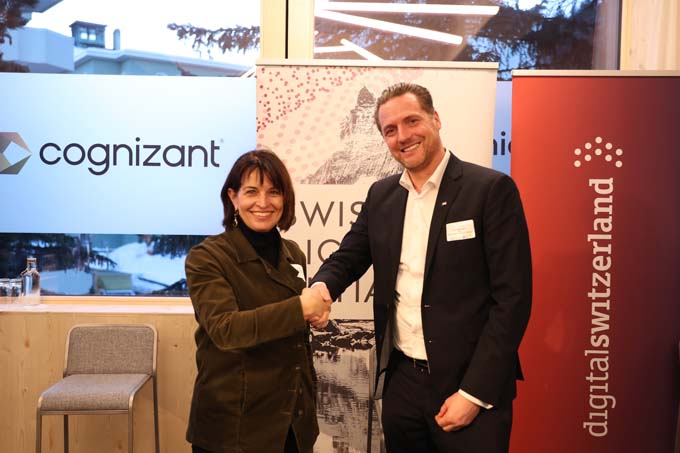More than one in two people in German-speaking Switzerland are open to a new job
Confidence in the Swiss labor market is higher than it has been for a long time: 86 % of employees are (rather) not worried about their job - a significant increase compared to 2024 (75 %). Nevertheless, the desire for change remains strong: 56 % are planning or considering a job change, often for salary reasons or a desire for variety. These are the findings of a recent Xing study conducted by the Forsa opinion research institute.

The willingness to change jobs is made up of two categories: those employees who are specifically planning to change employer in the current year (12 %) and those who are open to changing jobs but have not yet taken any concrete steps (44 %).
In an international comparison, the Swiss are significantly more open to a job change than their neighbors: while 36 percent of respondents in Germany and 44 percent in Austria are willing to change jobs, this figure is 56 percent in Switzerland.
Too little pay, a desire for variety and poor management
The willingness of employees in Switzerland to change jobs is not necessarily an expression of dissatisfaction. Overall, around 85% of those surveyed stated that they were very or fairly satisfied with their job. Even among those willing to change jobs, the majority (76 %) are basically satisfied.
At 43 percent, too low a salary is at the top of the list of reasons for not wanting to stay in the current job, followed by a general desire for variety (34 %), dissatisfaction with the direct manager (24 %) and dissatisfaction with the strategic direction of the company (24 %). It is particularly striking that women are significantly more likely than men to cite salary as a reason for changing jobs: 52% of women feel that their salary is too low and see this as a motivator for changing jobs, compared to 35% of men.
For those who want to stay with their employer in the long term, the most frequently cited reasons are collegial cohesion (58 %), job security (55 %), work-life balance (53 %) and the work tasks (53).
More money and flexible working hours
What respondents want most from a new employer is a higher salary (58 %), flexible working hours (54 %), job security (53 %) and an attractive company location (53 %). Good management behavior is also important (48 %).
Nevertheless, money is not everything: when asked which aspects would prevent respondents from applying to a company despite better pay, they mainly mentioned an unfavorable company location (47 %), poor management culture (41 %) and a fixed-term contract (36 %).

When asked which additional offers would make a potential employer more attractive, the 4-day week with the same weekly working hours comes out on top (52 %). The possibility of a sabbatical (34 %) and pay transparency (33 %) follow at a distance.
"The results clearly show that while a higher salary and flexible working hours are still the main incentives for changing jobs, more and more employees are attaching importance to a good management culture and an attractive working environment. Employers who stand out not only through salary, but also through working conditions and company values, can attract the best talent in the long term," says Thomas Kindler, Managing Director Xing.
Swiss employees are optimistic about the future
Confidence in finding a new job quickly is high among employees: more than half (57 %) are convinced that they will be successful within six months. In addition, the vast majority of respondents (81 %) had a positive experience with their last change of employer. For 42 percent, their expectations were fully met, for 39 percent at least partially. Concern about losing their current job remains low at 86% - a significant increase compared to the previous year (75 %), which indicates growing confidence among employees.
Employees in German-speaking Switzerland generally have a positive attitude towards work: the majority of those surveyed plan to remain in employment at least until the normal retirement age. 43% (men: 41 %, women: 46 %) would like to work until the age of 65. A further 22% would like to stay in work even longer, with this figure rising to 27% in the 50+ generation.
Money plays a role here, but not the decisive one: 55% hope to stay fit, 47% are looking for personal fulfillment and 41% want to maintain their social contacts. However, more than one in three of those surveyed (38 %) are extending their working life out of financial necessity, for example because their monthly pension is not enough.
"The willingness to work longer shows that employees in Switzerland want to remain active not only for financial reasons, but also out of a desire for personal fulfillment, mental fitness and social contact. Employers should see this as an opportunity to retain their employees in the long term and create a working environment that supports these needs," concludes Thomas Kindler.
























